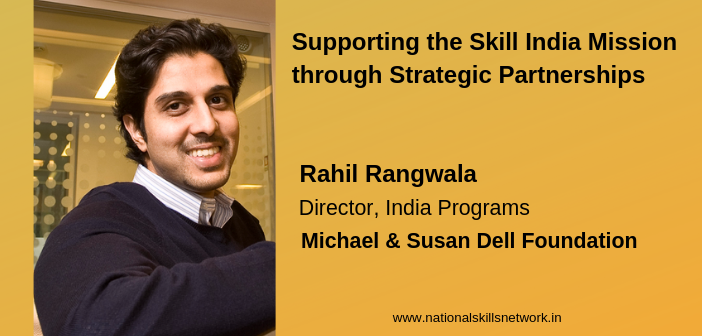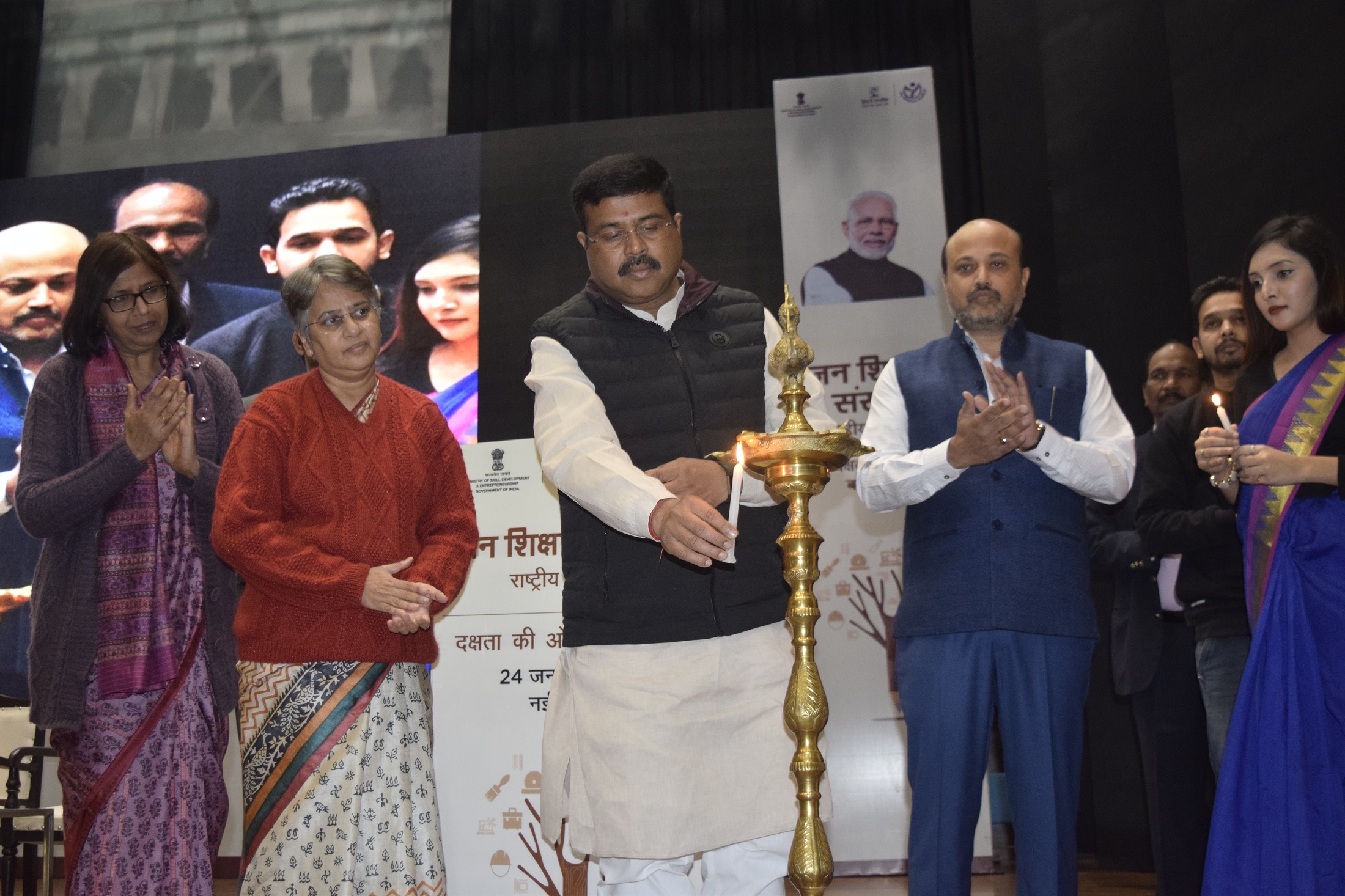The Michael & Susan Dell Foundation has been actively investing in skills and livelihoods space, working with several partners in India. The support extended by Michael & Susan Dell Foundation to Skill India mission, through their public and private partners, has impacted over 200,000 youth across India, with an average job placement rate of 70%. We spoke with Rahil Rangwala, Director India Programs, Michael & Susan Dell Foundation to learn more about their vision for integrating skills with education to build an ecosystem that brightens the lives of children and youth in India. Let’s read on…
Impacting skilling and employment in India
The Michael & Susan Dell Foundation is committed to transforming the lives of children living in urban poverty through improving their education, health, and family economic stability. As part of our work to accelerate opportunity for children living in urban poverty in India, we know it’s critical to provide life and work-readiness skills in schools so that students leave the formal education system ready to tackle their next endeavor. It’s also essential that these youth have access to opportunities where they can apply their skills towards gainful employment.
There is no single or correct pathway from education to career or vocation. The work our partners are doing to help more students learn skills, graduate, and earn employment is complex, and requires an interconnected set of interventions to make change.
So, we also believe it’s important that we work closely with employers and design programs that address their needs through standalone skills training programs to enhance employability and promote entrepreneurship.
Supporting the Skill India mission through partnerships
The Dell Foundation has been actively investing in the skills and livelihoods space in India since 2008. We work with public and private partners in support of the Skill India mission. Taken together, the organizations we work with are making substantial impact – they have supported over 200,000 youth across India and have an average job placement rate of 70%. Organizations in India like LabourNet and Dream a Dream are making strides to advancing skilling programs within the formal education system. Other organizations like iMerit, OnlineTyari, and Kings Learning are working to leverage technology to help more people build skills including English-language learning, information technology, and mobile test preparation.

And as the technology available to us all advances, we work with our partners to find new ways to leverage technology to reach more young people with the skills they need for the jobs of the future. For example, our partner iMerit is helping young people learn how to work with artificial intelligence algorithms that will inform practical societal applications like cancer research and self-driving cars. Because of its AI initiatives, iMerit is hiring 200-300 people per quarter, and 80% of its workforce is made up of low-income youth. Another partner, Blowhorn, developed a technology platform to facilitate last mile intra-city logistics. Truck drivers, who traditionally struggled to find steady work, can now use the Blowhorn platform to be matched with jobs across the city in which they live. The drivers we met who use Blowhorn have used their increased earnings to pay off debts, send their children to better schools, and buy their second truck.
Use of technology to create and measure impact
The opportunity in India is massive. More partners, funders, and stakeholders are using technology and data together to better understand customers and how to serve them with solutions that make sense and are scalable. At the Dell Foundation, we believe that true “scale” must be measured by the impact on real human lives. Is the impact of the work scaling alongside the size of the initiative?
One of the Dell Social Impact Principles is “measure mindfully.” We work with our partners to ensure that we are thoughtful about the impact we want to help create and how we measure that impact to document change. In our work in India, we are regularly measuring placement rates, wages earned by low-income youth, career progression, and job retention rates where these measures help further the mission of our portfolio companies.
As we look to new opportunities presented by shifts in technology and cross-sector collaboration, we must continue to be vigilant and thoughtful about the type of impact we want to create and how we go about measuring it. For example, apprenticeships present an enormous opportunity to provide “learn and earn” models of study and work for young people in India.
But there are challenges to measuring the impact of apprenticeships and other employment models because data on the current unemployment and underemployment situation is difficult to aggregate. Recent studies show youth unemployment in India at 16%, while overall unemployment is at 7.3%. However, there are no estimates on underemployment, which is one of the bigger challenges we face.
Vision for integrating skills with education
Providing opportunities to gain education and skills is just one piece of the ongoing work that must be done to address urban poverty at scale. We also need to work with like-minded stakeholders to affect change through counseling, student assessments, and the creation of industry standards for certification. We must bring skills training programs closer to the formal education system by establishing formal curriculum, aligning grading systems, and making credits transferrable.
We need to work with employers to make sure that we’re matching skilled youth with jobs that provide promising futures and set into motion a change in the trajectory of entire families and communities. And most importantly, we must listen to the youth and center their needs and aspirations as we work towards solutions. Together, we can build an ecosystem that helps many more young people towards a brighter future.














nice one